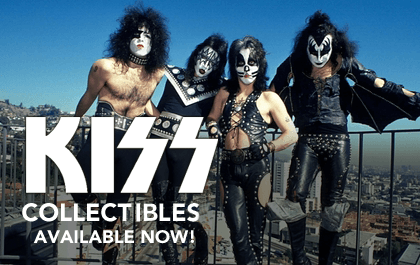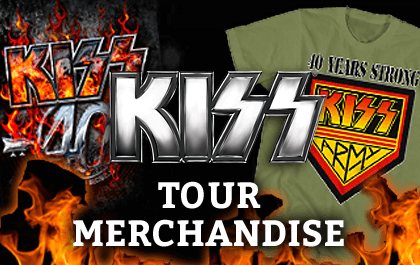Gene Simmons Talks with American Song Writer

JACOB UITTI / americansongwriter.com
Talking with legendary rock ‘n’ roll musician, Gene Simmons, one thing becomes clear pretty quick—he likes a good thrill. Though he speaks measuredly, thoughtfully and with clear perspective, what he talks about is often that which excites him. As he puts it, life should be a roller coaster that does anything but go straight ahead. There needs to be swoops, dives, jolts and misdirection that get one’s heart pumping. Simmons, of course, is a master at that. His band, KISS, is the leader in the clubhouse when it comes to on-stage pyrotechnics. And the amount of face makeup the band has used over the years could likely paint a mansion or two. And Simmons, who has endeavored in seemingly countless successful areas of branding and business over the years, has recently partnered with the prominent guitar company, Gibson, to create the new G2 series of signature basses and six-strings.
American Songwriter caught up with the rocker to talk about his early days coming to America from Israel as an immigrant, what he loves about music, what he loves about comic books, his crypto currency investments and much more.
American Songwriter: When did music first enter your life as a young person?
Gene Simmons: I was probably nine years of age. I had just come to America. I couldn’t speak a word of English. This was in 1958. Maybe it was 1858—see what I did there? That was a joke. And the first music I heard was Chuck Berry. Ironically, I did the eulogy at Chuck’s funeral. I happen to be there and the family asked me to do the eulogy for Chuck Berry, which, obviously, is a great honor. But the first music I heard was, I guess, the founding fathers of rock. Chuck Berry, Little Richard, Fats Domino. All those African-Americans that made all of it work. Now, I wasn’t familiar with the blues. I’d never heard of Howling Wolf or T. Bone or any of those guys until much later on. The original guys I heard that impacted my life basically was Black music. And then after that, Jackie Wilson and, you know, all those guys. The white guys were okay and they appealed to the chicks and everything. But the real stuff was Black music. That made your bottom, your groin shake and move in ways that white music didn’t. Even Chubby Checker—I became a ‘Twist’ champion when he did the twist, which was originally recorded by Hank Ballard and the Midnighters. He covered it and sounded a lot like Hank Ballard. And then he had, ‘Let’s Twist Again,’ which also became a hit—number one. And I was the ‘Twist’ champion of my school. But also ‘The Twist’ was kind of pop Black music, but it made you shake your groin, your hips.
AS: There’s a long history in America, especially at the time that you came to the country, of Black Americans and Jewish Americans working closely together in places like New York City. Do you think about that at all when you remember the first music that impacted you here in the States?
GS: Well, the real secret that’s not widely talked about is that it was Jews—you know, originally, it was race music. Black music was not allowed to be heard on white radio. And it was really the Jews—[Jerry] Leiber and [Mike] Stoller, who wrote, ‘You ain’t nothin’ but a hound dog’ and ‘Give me fever in the morning,’ all that Black music. The Coasters and Ben E. King and all that, written by two Jews. Two Jews who couldn’t stand Broadway and that kind of schmaltzy music that the other Jews were doing. They loved Black music and they were responsible for a lot of the Black music that came out there. Elvis, Big Momma Thornton and all that. The truth is that if it wasn’t for Sam Phillips and a lot of the other guys, early rock ‘n’ roll, including Elvis, would have never happened. It was these Jews who owned the record companies that opened the doors to Black music. Sam Phillips recorded Bo Diddley and lots of other stuff while the rest of the record companies would never touch them.





